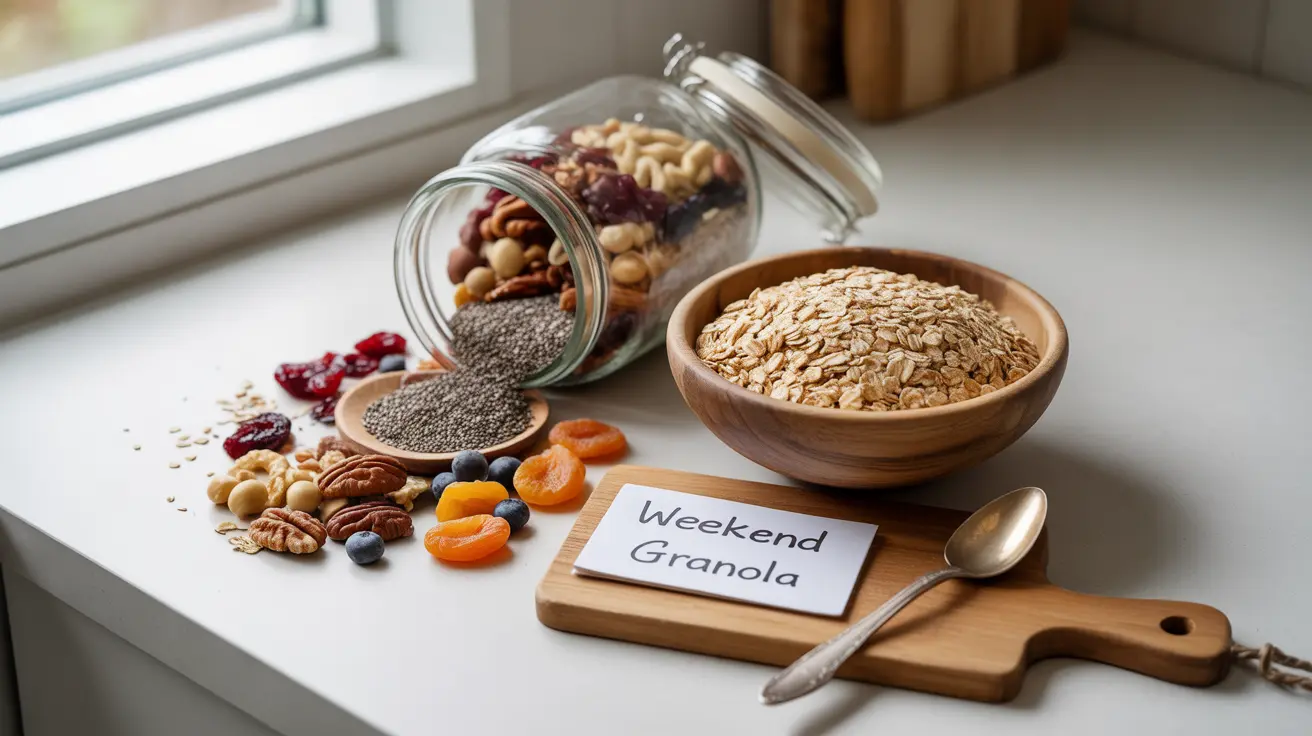Granola has become a breakfast staple for many health-conscious individuals, but questions persist about its true nutritional value. This popular cereal mixture, typically made from rolled oats, nuts, seeds, and sweeteners, offers both potential benefits and considerations that deserve a closer look.
Understanding granola's nutritional profile and how it fits into a balanced diet is crucial for making informed dietary choices. Let's explore what makes granola healthy or potentially problematic, and how to choose or prepare the most nutritious options.
Nutritional Profile of Granola
Granola's basic ingredients typically provide several important nutrients:
- Whole grain oats: Rich in fiber and beta-glucans
- Nuts: Source of healthy fats and protein
- Seeds: Packed with minerals and omega-3 fatty acids
- Dried fruits: Contain natural sugars and antioxidants
However, the nutritional value can vary significantly depending on the specific ingredients and preparation method. Quality granola typically provides complex carbohydrates, protein, and healthy fats, making it a potentially filling breakfast option.
The Sugar Content Concern
One of the biggest challenges with commercial granola is its often high sugar content. Many store-bought varieties contain added sugars in various forms:
- Brown sugar
- Honey
- Maple syrup
- Corn syrup
- Artificial sweeteners
These added sugars can significantly increase the caloric content and potentially negate some of granola's health benefits. Being aware of sugar content is crucial for making healthy choices.
Portion Control and Weight Management
While granola can be nutritious, its caloric density makes portion control essential. A typical serving size is usually 1/4 to 1/2 cup, though many people consume much more. Understanding appropriate portion sizes helps prevent overconsumption and supports weight management goals.
Heart Health and Cholesterol Impact
The ingredients in granola can have varying effects on heart health. Oats contain beta-glucans that may help lower cholesterol levels, while nuts and seeds provide heart-healthy fats. However, excessive added sugars and saturated fats in some varieties could counteract these benefits.
Making Healthier Granola Choices
Reading Labels Effectively
When shopping for granola, consider these factors:
- Sugar content (aim for less than 6g per serving)
- Fiber content (at least 3g per serving)
- Protein content (minimum 3g per serving)
- Ingredient list (whole foods should appear first)
Creating Homemade Alternatives
Making granola at home allows complete control over ingredients and can result in a healthier product. Focus on using minimal sweeteners and incorporating nutrient-rich ingredients like nuts, seeds, and dried fruits without added sugars.
Frequently Asked Questions
Is granola a healthy breakfast option for weight management?
Granola can be part of a healthy breakfast when consumed in appropriate portions. Choose varieties low in added sugars and high in fiber and protein, which help promote satiety. Combine with yogurt or milk and fresh fruit for a more balanced meal.
What should I look for on the label to choose a nutritious granola with low sugar?
Look for granolas with less than 6g of sugar per serving, at least 3g of fiber, and minimal processed ingredients. Check that whole grain oats are listed first, followed by nuts and seeds rather than sweeteners.
How does granola affect heart health and cholesterol levels?
Granola containing whole grain oats, nuts, and seeds can support heart health through fiber and healthy fats. However, varieties high in added sugars or saturated fats may negatively impact cardiovascular health. Choose products with heart-healthy ingredients and minimal added sugars.
Can eating too much granola cause weight gain, and how can I control portion sizes?
Yes, overconsumption of granola can lead to weight gain due to its caloric density. Stick to recommended serving sizes (1/4 to 1/2 cup) and measure portions rather than eating straight from the package. Consider using granola as a topping rather than a main dish.
Are homemade granola recipes healthier than store-bought varieties?
Homemade granola can be healthier as you control the ingredients, particularly sugar content and oil types. You can maximize nutritious ingredients like nuts and seeds while minimizing sweeteners and using healthy fats like olive oil instead of processed oils.




